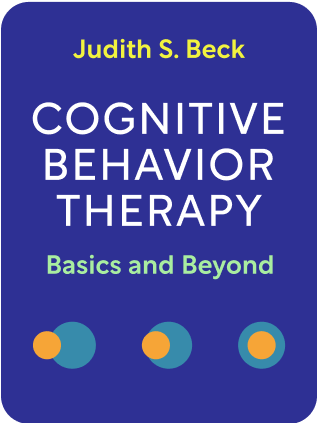

This article is an excerpt from the Shortform book guide to "Cognitive Behavior Therapy: Basics and Beyond" by Judith S. Beck. Shortform has the world's best summaries and analyses of books you should be reading.
Like this article? Sign up for a free trial here .
What is the best advice for ending therapy with a patient? What problems might you encounter when terminating therapy sessions?
Terminating therapy with a patient can be difficult. This is because the patient is likely to encounter setbacks once sessions have ended and need to be able to rely on themselves. Terminating therapy sessions successfully is all about teaching the patient to be their own therapist.
Keep reading to find out more about terminating therapy sessions with a patient.
Planning for Terminating Therapy
CBT is intended to be fixed in duration, teaching the patient to be her own therapist. This is the key to ending therapy with a client and terminating therapy sessions. Make this known to the patient at the beginning, to prepare for the expectation. Ending therapy with a client can be difficult to navigate, but the following advice can help.
To help ease the transition, help the patient attribute positive changes to herself, not to the therapist or external causes. This will help the patient adapt to terminating therapy sessions.
- The patient needs to develop confidence about her ability to solve her own problems.
- The patient is the one who puts in the work, so the therapist should get only a portion of credit.
As you prepare for ending therapy with a client, patients should anticipate setbacks and anticipate how they will respond.
- Chart out the patient’s likely affect over time. This can look like the southern border of the US—Texas and Florida are troughs with lows.
- Role play how the patient will feel during a setback. Ask how they predict they’d feel. In response, answer the thoughts and create coping cards.
Make a list of tools the patient has employed to deal with stressful situations:
- Identifying, responding to automatic thoughts
- Using thought records
- Scheduling activities
- Techniques for relaxation, distraction, and refocusing
Guide the patient to conduct self-therapy sessions, consisting of a template similar to normal therapy sessions. A template might include:
- Review of past week, mood check
- Review homework
- Review current problems and engage in problem solving
- Set new homework
- Schedule next therapy session
Prepare for terminating therapy sessions like any other stressful situation.
- Elicit advantages and disadvantages of tapering therapy, with disadvantages reframed.
- “I might relapse” can be turned to “If I’m going to relapse, it’s better for it to happen while I’m in therapy so I can learn how to handle it.”
- Help respond to any distortions, such as catastrophizing a relapse.
Schedule booster sessions.
- Having these pre-scheduled may motivate the patient to do homework in between.
- It reduces anxiety about being on their own.
- Assign questions to answer before booster sessions about what work has done in between, and how problems were handled.

———End of Preview———
Like what you just read? Read the rest of the world's best book summary and analysis of Judith S. Beck's "Cognitive Behavior Therapy: Basics and Beyond" at Shortform .
Here's what you'll find in our full Cognitive Behavior Therapy: Basics and Beyond summary :
- How to use CBT to overcome anxiety, sadness, anger, frustration, and stress
- How to address traumatic events earlier in your life, so that they have less hold on your thinking today
- The key ways to build rapport as a cognitive behavior therapist






